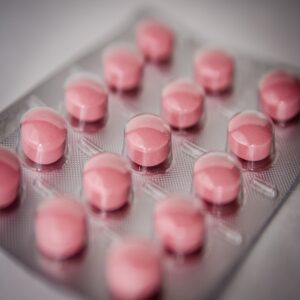Myo-inositol is a member of the vitamin B-complex group. It is found in a wide variety of foods including fresh fruits, beans, whole grains, and seeds. Myo-inositol has been used in the treatment of diabetic neuropathy, depression, Alzheimer’s disease, panic disorder, and polycystic ovary syndrome (PCOS).
Myo-inositol is taken orally as a supplement. It is well tolerated and appears safe when used at doses up to 12 grams per day. The longest reported utilization of myo-inositol for enhancing fertility is 12 months. Common side effects may include nausea fatigue, dizziness, and insomnia. Myo-inositol can be beneficial in improving fertility because of its effectiveness in women with PCOS, in vitro fertilization (IVF) procedures, and pregnancy.
Facts about Myo-inositol:
- Myo-inositol is a dietary supplement available without prescription
- Myo-inositol appears safe and non-toxic
- The typical treatment dose is 2 grams with 400 micrograms of folic acid twice daily; a mixture of Myo-inositol with D-chiro-inositol (40:1) appears to be the most effective form
- In patients with PCOS, a high percentage of women taking Myo-inositol will establish regular periods and show evidence of ovulation
- For IVF patients, no standard time for pretreatment with Myo-inositol has been established, though the majority of studies begin 1 to 3 months before the actual IVF cycle
- Emerging evidence shows promise for the use of the supplement in the reduction/prevention of gestational diabetes (GDM) in patients with PCOS or those at risk due to GDM or prior family history.
Myo-inositol and PCOS
Many patients with PCOS are insulin-resistant. Myo-inositol has been used as a supplement in patients with PCOS based on this observation. It is classified as an insulin-sensitizing agent that acts to regulate a number of cellular functions including improved insulin utilization. It appears at least as effective as metformin, another insulin-sensitizing drug.
In women with PCOS, Myo-inositol improves insulin sensitivity and reduces insulin levels. Clinical studies have shown that both Myo-inositol and D-chiro-inositol may also:
- Decrease serum androgens (male hormones)
- Decrease triglycerides
- Increase HDL cholesterol (the good cholesterol)
- Lower systolic and diastolic blood pressure.
A recent study published in February 2015 again demonstrated the effectiveness of Myo-inositol in patients with PCOS. Fifty women with PCOS, insulin resistance, and lack of ovulation were given the drug. Twenty-nine of the 50 women showed evidence of ovulation and 11 (37.9%) became pregnant. In the patients who did not ovulate on myo-inositol alone, 13 of the 18 showed an ovulatory response when clomiphene was added and six (42.6%) conceived.
Myo-inositol and IVF
Non-PCOS IVF patients receiving 4 grams of Myo-inositol with 800 micrograms of folic acid daily have demonstrated a reduction in the amount of follicle-stimulating hormone (FSH) administered and a reduction in the total number of mature oocytes obtained, with no resulting change in clinical pregnancy rates.
In studies of PCOS patients undergoing IVF, pretreatment with 4 grams of Myo-inositol with 800 mcg daily of folic acid resulted in less total FSH used for stimulation. Pregnancy rates may be improved (this is a trend, but not statistically significant).
Myo-inositol and pregnancy
An Italian study reports a 66 percent reduction in the incidence of gestational diabetes in obese women (BMI 30 or >) who took Myo-inositol (2 grams Myo-inositol + 200 mcg folic acid twice daily). The supplementation was started in the first trimester and continued until delivery. The authors propose that the reduction was due to improved insulin sensitivity.







